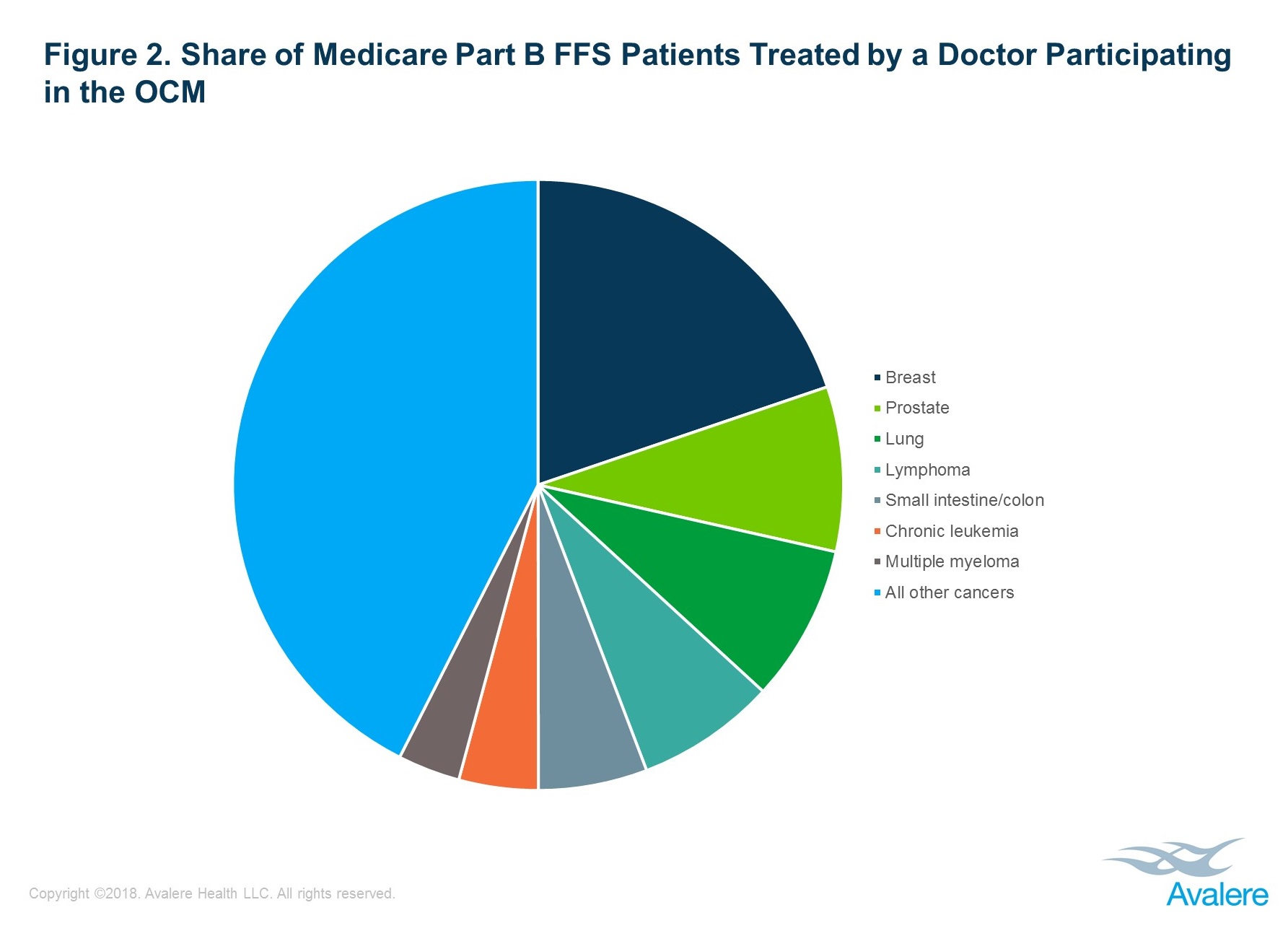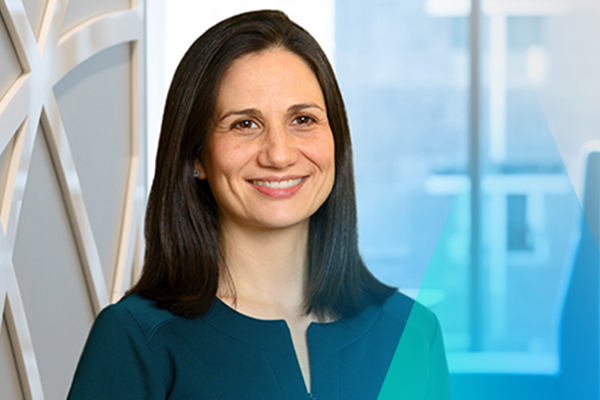More than 1 in 5 Medicare Cancer Patients Receive Care from Oncology Care Model Doctors
Summary
More than 25% of patients with breast and lung cancers have been treated by a participating Oncology Care Model doctor. Participation trends could accelerate the transformation of treatment for some cancers, according to Avalere experts.New research from Avalere finds that 21% of cancer patients in Medicare Part B fee-for-service (FFS) were treated by an oncology practice participating in the Oncology Care Model (OCM) in 2017. Among the more common types of cancers, more than 25% of patients with breast and lung cancers and 12% of patients with prostate cancer are treated by a doctor participating in the OCM.
“Oncologists participating in the Oncology Care Model are attempting to reshape their practices in an effort to deliver higher quality care at a lower cost,” said Dana Macher, vice president at Avalere. “The efforts made by oncologists to their practices under the Oncology Care Model have the potential to redefine the way care is delivered for all oncology patients, not just those treated in the program.”
The OCM is a voluntary five-year bundled payment program developed by the Center for Medicare & Medicaid Innovation. Started in 2016, the OCM is one of the first physician-led specialty care models created by CMMI with the aim to improve quality and reduce the cost of care. There are 184 oncology practices, representing more than 6,500 practitioners, and 13 payers across the US participating in the model.
OCM participants are eligible to receive performance-based payments for 21 types of cancers as well as monthly enhanced oncology service (MEOS) payments for these 21 cancers and a group of less common cancer types. Avalere experts estimate there were 2.2 million patients with these types of cancers in Medicare Part B FFS in 2017. Among them, Avalere estimates 472,000 patients (or 21%) received care from a doctor participating in the OCM.
Avalere’s analysis shows that the share of cancer patients in Medicare Part B FFS being treated by an oncologist participating in the OCM varied between 12% and 30% in 2017, depending on the type of cancer (Figure 1).
“About one-fifth of Medicare Part B fee-for-service patients are treated by a doctor participating in the Oncology Care Model, but those doctors are treating more of some cancer types than others,” said Richard Kane, senior director at Avalere. “The Oncology Care Model may be accelerating oncology practice transformation for some cancers more than others.”
Avalere experts estimate that more than half of all patients treated by oncologists in the OCM have breast, prostate, lung, or small intestine/colon cancers or lymphoma (see Figure 2).
Methodology
Avalere analyzed Medicare Part B FFS claims for 2017 under a CMS research data use agreement. Avalere analyzed a cohort of patients including all cancer patients receiving cancer treatment that represents less than 20% of total beneficiaries. We defined a beneficiary to be receiving cancer treatment if they received two or more physician evaluation and management (E&M) visits with a cancer diagnosis during the year. Avalere identified E&M visits with a cancer diagnosis in the same way it is defined in the OCM, using Part B carrier claims with a HCPCS code in the range of 99201-99205 (new patient visit) or 99211-99215 (established patient visit). For cancer diagnoses, we limited our analysis to the cancer types that are in the OCM program. Avalere defined each patient’s type of cancer using the same ICD-10 mapping used in the OCM. For patients having multiple types of cancers in 2017, we determined their cancer type based on the diagnosis appearing on the plurality of their E&M visits during the year. (In the event that no cancer diagnosis had a plurality of E&M visits, we used the diagnosis on the patient’s last E&M visit in 2017.) The OCM uses a similar plurality approach when determining the type of cancer for an episode.
Using this approach, Avalere identified about 2.2 million cancer patients in Medicare Part B FFS. Some of these patients were undergoing chemotherapy or other cancer drug treatments, and so would potentially have been attributed to an OCM episode, while others were undergoing radiation therapy or ‘watchful-waiting,’ and therefore would likely not have been attributed to an OCM episode. E&M visits suggest only that the patient was engaging with a physician regarding a cancer diagnosis. In the OCM program, a Part B carrier claim E&M visit with a cancer diagnosis must occur for treatment cost to be counted in an episode, regardless of whether the episode-triggering cancer drug therapy was covered in Part B or Part D. Furthermore, it is the E&M visit that determines to which oncology practice the episode is attributed.
To identify which Medicare patients were treated by an OCM participant practice, Avalere used the tax identification numbers (TINs) accompanying the line payment for the E&M visit with a cancer diagnosis. An oncology practice’s physicians use a single TIN when participating in OCM. We identified OCM practice TINs using publicly available information about the participating practices, as well as billing patterns in the Part B claims. For patients that received E&M visits from multiple TIN-provider entities in 2017, we determined they were treated by an OCM practice only if the plurality of their E&M visits were billed by the OCM practice TIN. In the event that no TIN had a plurality of E&M visits, we used the TIN on the patient’s last E&M visit in 2017. The OCM uses a similar plurality approach when determining the attribution of episodes to OCM practices.
To learn more about our OCM-related modeling capabilities, connect with us. Avalere is supporting our clients in addressing business-critical questions related to changes in care patterns, other healthcare resource utilization (e.g., outpatient follow up visits, surgery, radiation, ER visits, hospitalizations), and patient outcomes under OCM.









